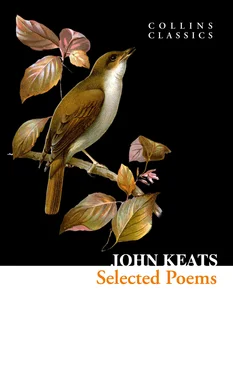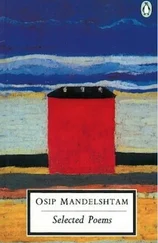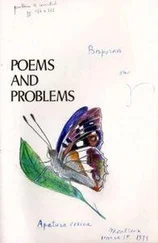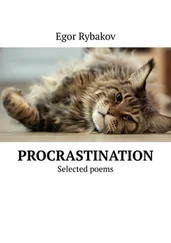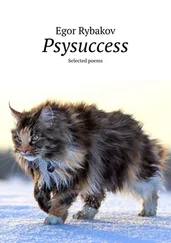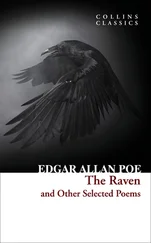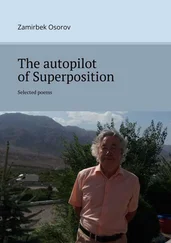With a still, mysterious stealth:
She will mix these pleasures up
Like three fit wines in a cup,
And thou shalt quaff it: – thou shalt hear
Distant harvest-carols clear;
Rustle of the reaped corn;
Sweet birds antheming the morn:
And, in the same moment – hark!
’Tis the early April lark,
Or the rooks, with busy caw,
Foraging for sticks and straw.
Thou shalt, at one glance, behold
The daisy and the marigold;
White-plum’d lilies, and the first
Hedge-grown primrose that hath burst;
Shaded hyacinth, alway
Sapphire queen of the mid-May;
And every leaf, and every flower
Pearled with the self-same shower.
Thou shalt see the field-mouse peep
Meagre from its celled sleep;
And the snake all winter-thin
Cast on sunny bank its skin;
Freckled nest-eggs thou shalt see
Hatching in the hawthorn-tree,
When the hen-bird’s wing doth rest
Quiet on her mossy nest;
Then the hurry and alarm
When the bee-hive casts its swarm;
Acorns ripe down-pattering,
While the autumn breezes sing.
Oh, sweet Fancy! let her loose;
Every thing is spoilt by use:
Where’s the cheek that doth not fade,
Too much gaz’d at? Where’s the maid
Whose lip mature is ever new?
Where’s the eye, however blue,
Doth not weary? Where’s the face
One would meet in every place?
Where’s the voice, however soft,
One would hear so very oft?
At a touch sweet Pleasure melteth
Like to bubbles when rain pelteth.
Let, then, winged Fancy find
Thee a mistress to thy mind:
Dulcet-eyed as Ceres’ daughter,
Ere the God of Torment taught her
How to frown and how to chide;
With a waist and with a side
White as Hebe’s, when her zone
Slipt its golden clasp, and down
Fell her kirtle to her feet,
While she held the goblet sweet,
And Jove grew languid. – Break the mesh
Of the Fancy’s silken leash;
Quickly break her prison-string
And such joys as these she’ll bring. –
Let the winged Fancy roam
Pleasure never is at home.
O Goddess! hear these tuneless numbers, wrung
By sweet enforcement and remembrance dear,
And pardon that thy secrets should be sung
Even into thine own soft-conched ear:
Surely I dreamt to-day, or did I see
The winged Psyche with awaken’d eyes?
I wander’d in a forest thoughtlessly,
And, on the sudden, fainting with surprise,
Saw two fair creatures, couched side by side
In deepest grass, beneath the whisp’ring roof
Of leaves and trembled blossoms, where there ran
A brooklet, scarce espied:
’Mid hush’d, cool-rooted flowers, fragrant-eyed,
Blue, silver-white, and budded Tyrian,
They lay calm-breathing on the bedded grass;
Their arms embraced, and their pinions too;
Their lips touch’d not, but had not bade adieu,
As if disjoined by soft-handed slumber,
And ready still past kisses to outnumber
At tender eye-dawn of aurorean love:
The winged boy I knew;
But who wast thou, O happy, happy dove?
His Psyche true!
O latest born and loveliest vision far
Of all Olympus’ faded hierarchy!
Fairer than Phœbe’s sapphire-region’d star,
Or Vesper, amorous glow-worm of the sky;
Fairer than these, though temple thou hast none,
Nor altar heap’d with flowers;
Nor virgin-choir to make delicious moan
Upon the midnight hours;
No voice, no lute, no pipe, no incense sweet
From chain-swung censer teeming;
No shrine, no grove, no oracle, no heat
Of pale-mouth’d prophet dreaming.
O brightest! though too late for antique vows,
Too, too late for the fond believing lyre,
When holy were the haunted forest boughs,
Holy the air, the water, and the fire;
Yet even in these days so far retir’d
From happy pieties, thy lucent fans,
Fluttering among the faint Olympians,
I see, and sing, by my own eyes inspired.
So let me be thy choir, and make a moan
Upon the midnight hours;
Thy voice, thy lute, thy pipe, thy incense sweet
From swinged censer teeming;
Thy shrine, thy grove, thy oracle, thy heat
Of pale-mouth’d prophet dreaming.
Yes, I will be thy priest, and build a fane
In some untrodden region of my mind,
Where branched thoughts, new grown with pleasant pain,
Instead of pines shall murmur in the wind:
Far, far around shall those dark-cluster’d trees
Fledge the wild-ridged mountains steep by steep;
And there by zephyrs, streams, and birds, and bees,
The moss-lain Dryads shall be lull’d to sleep;
And in the midst of this wide quietness
A rosy sanctuary will I dress
With the wreath’d trellis of a working brain,
With buds, and bells, and stars without a name,
With all the gardener Fancy e’er could feign,
Who breeding flowers, will never breed the same:
And there shall be for thee all soft delight
That shadowy thought can win,
A bright torch, and a casement ope at night,
To let the warm Love in!
On first looking into Chapman’s Homer
Much have I traveled in the realms of gold,
And many goodly states and kingdoms seen;
Round many western islands have I been
Which bards in fealty to Apollo hold.
Oft of one wide expanse had I been told
That deep-brow’d Homer ruled as his demesne;
Yet did I never breathe its pure serene
Till I heard Chapman speak out loud and bold:
Then felt I like some watcher of the skies
When a new planet swims into his ken;
Or like stout Cortez when with eagle eyes
He star’d at the Pacific – and all his men
Look’d at each other with a wild surmise –
Silent, upon a peak in Darien.
I.
Season of mists and mellow fruitfulness,
Close bosom-friend of the maturing sun;
Conspiring with him how to load and bless
With fruit the vines that round the thatch-eves run;
To bend with apples the moss’d cottage-trees,
And fill all fruit with ripeness to the core;
To swell the gourd, and plump the hazel shells
With a sweet kernel; to set budding more,
And still more, later flowers for the bees,
Until they think warm days will never cease,
For Summer has o’er-brimm’d their clammy cells.
II.
Who hath not seen thee oft amid thy store?
Sometimes whoever seeks abroad may find
Thee sitting careless on a granary floor,
Thy hair soft-lifted by the winnowing wind;
Or on a half-reap’d furrow sound asleep,
Drows’d with the fume of poppies, while thy hook
Spares the next swath and all its twined flowers:
And sometimes like a gleaner thou dost keep
Steady thy laden head across a brook;
Or by a cyder-press, with patient look,
Thou watchest the last oozings hours by hours.
III.
Where are the songs of Spring? Ay, where are they?
Think not of them, thou hast thy music too, –
While barred clouds bloom the soft-dying day,
And touch the stubble-plains with rosy hue;
Then in a wailful choir the small gnats mourn
Among the river sallows, borne aloft
Or sinking as the light wind lives or dies;
And full-grown lambs loud bleat from hilly bourn;
Hedge-crickets sing; and now with treble soft
The red-breast whistles from a garden-croft;
And gathering swallows twitter in the skies.
Читать дальше
